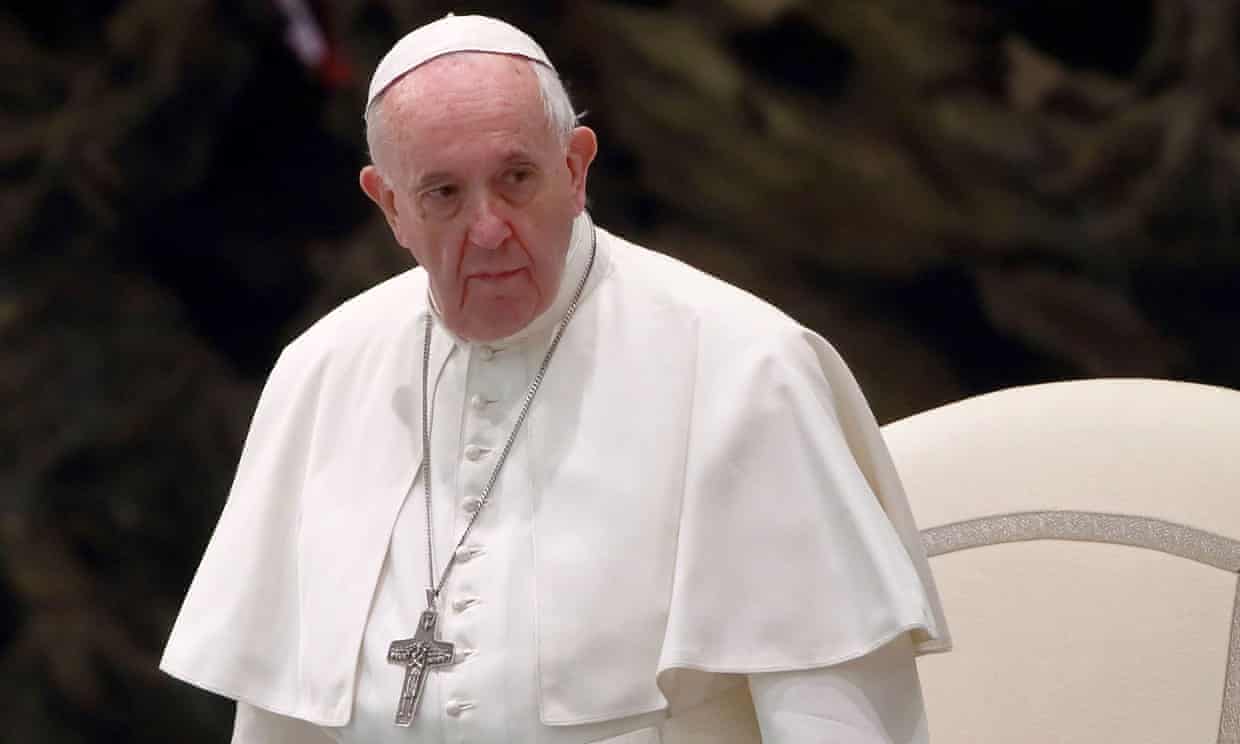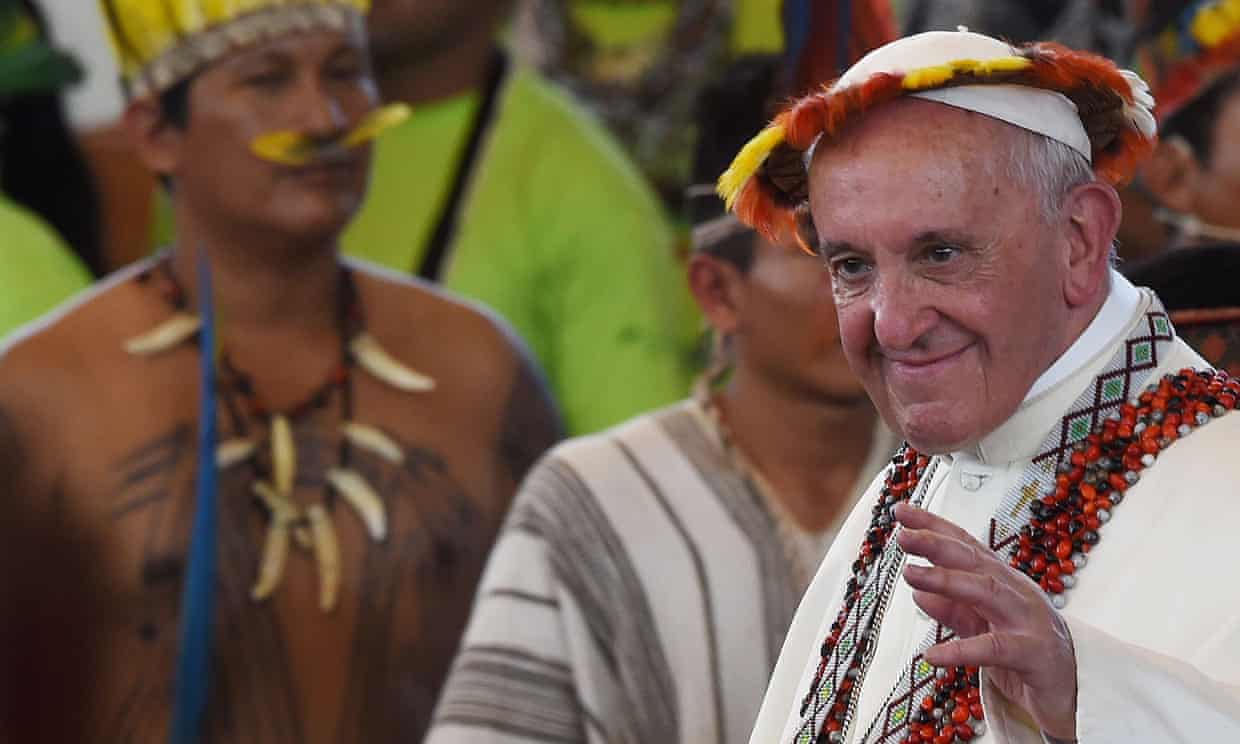
Opinion
The pope’s liberal supporters feel that he’s let them down
Francis’s refusal to allow the ordination of married men has highlighted divisions in the church
by Catherine PepinsterWhen the cardinals of the Roman Catholic church gathered for their conclave in the Sistine Chapel in 2013 and elected the Argentinian Jorge Bergoglio as the next pope, he joked that they had gone to the ends of the Earth to find him. It turned out that this was more than a joke: it was a warning of what was to come. The man who chose the name Francis, for the saint of Assisi who dedicated himself to the poor, has ever since been trying to shape the whole of the Catholic church to be more like the one found in Latin America.
The man he succeeded, Benedict XVI, was an old-school Catholic: a German intellectual with high regard for tradition, fancy liturgy and the trappings of office. When Francis took over, he rejected living in the apostolic palace and set up a council of advisers to rival the authority of Vatican officials. He visited refugees and washed the feet of prisoners during Maundy Thursday services in a reminder of Christ’s focus on the poorest and lowliest.
Traditionalists fumed; progressive Catholics loved it. Surely, the liberals thought, this is the pope who will rid the church of the insistence on celibacy for the priesthood and allow married priests? And might he, just might he, even allow female priests, or at least deacons?
But this week Francis dealt the liberals a blow. In a document called Querida Amazonia (Beloved Amazon), he turned down the opportunity to recommend married priests as the solution to a shortage of priests in the Amazon region – despite the wishes of Amazon bishops. Those bishops had also called for the church to let women serve within the clergy, but Francis offered no such change.
This was not the first time there has been controversy over Francis’s stance on the Amazon. When he called bishops and other representatives to Rome last year for a synod on the region, people brought little statues of the Pachamama, a pregnant Mother Earth figure, which were at the centre of some worship during the gathering.
On that occasion, it was traditionalists who reacted in fury: they threw what they saw as idolatrous statues into the Tiber. But Francis made his support for the statues clear, in effect recognising that they symbolise how Catholics in the Amazon basin have adapted their faith to incorporate native traditions. The Latin American pope warms to this kind of faith, rooted in the people, not imposed from above.
Francis’s document this week did still offer some encouragement to progressives. It attacked big business for destroying the Amazon and expressed concern for the indigenous Amazon peoples. “The inescapable truth,” wrote Francis, “is that, as things stand, this way of treating the Amazon territory spells the end for so much life, for so much beauty.”
Querida Amazonia is typical of Francis’s making the environment and poverty great themes of his pontificate – just what liberal Catholics love. But on the matter of ordaining married priests, or opening up the priesthood to women, he was unwilling to give ground.
Francis is a pope who likes what he calls “reconciled diversity”, and he wants the Amazon bishops to now consider the challenges they face and find solutions appropriate for their culture. But they may well find his decision frustrating, especially as the celibacy rule can be lifted in exceptional circumstances, such as when married Anglican priests have converted to Catholicism. As for the question of female priests, Francis is concerned, as he warned in the document, about the risks of “clericalising” women.
That comment refers to the clericalism in the Catholic church – a cult of officialdom that makes clerics particularly important. It was supposed to have been addressed through reforms brought in by the Second Vatican Council of the 1960s, advocating a greater role for the laity. But change has been disappointingly slow – at least in Europe.

In Latin America, on the other hand, the laity has been given more influence – if not actual power. In the Amazon region, most Catholic communities are run by lay people, of which 60% are women and only a tiny proportion have resident priests. Francis wants more of this – what he describes as “lay leaders endowed with authority and familiar with the languages, cultures, spiritual experience and communal way of life in the different places”. That includes women receiving some kind of public recognition. Such grassroots reform is what Francis believes the fading European Catholic church needs, too, if it is to survive.
The difficulty with this is that however much the pope advocates not ordaining women to avoid this problem of clericalism, and calls for making the church more akin to what he calls a “field hospital” – caring for people and dressing their wounds – that doesn’t solve all the challenges it faces. Francis, through his experience in Argentina, believes the church must get its hands dirty and live alongside the people, both in practical and spiritual terms. But the heart of the Catholic church is still the communal experience of the mass – and for that you need a priest. If women are excluded from that crucial role, then they are not engaged in what is at the centre of Catholic faith.
Francis has now put himself in a position where he has infuriated his traditionalist critics and alienated his previous supporters – without really solving the shortage of priests in the Amazon. The man from the ends of the Earth has proved to be a disruptive figure in ways that no one expected.
• Catherine Pepinster is a former editor of the Tablet and author of The Keys and The Kingdom:The British and the Papacy from John Paul II to Francis